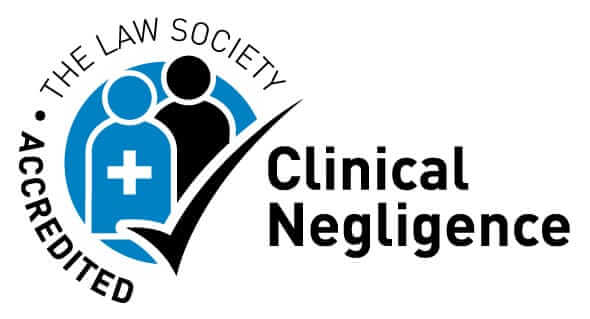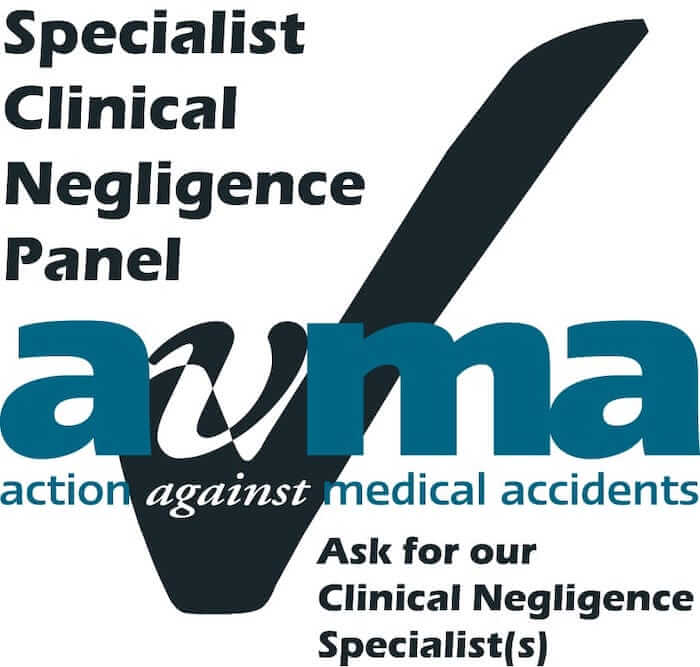Medical Negligence Complaints Solicitors
If you are not happy with the medical services that you or a family member have received, you have the right to have your concerns investigated by making a medical negligence complaint. Whether you’ve received inadequate treatment under the NHS or needless medical treatment privately, you deserve to be given a full and prompt response by the treating body.
When making a medical negligence complaint, you need to make sure you follow the correct process as outlined by the NHS or private body. Depending on where you received treatment, complaint procedures will vary between NHS services and different countries.
You can choose to make a complaint in writing, over email or by speaking to the service directly. If you choose to speak to the service, they may be able to resolve your concern without going through the formal complaints process – this is known as a local resolution.
If you don’t feel comfortable raising your concerns directly or your issue was not resolved, you can choose to make a full formal complaint.
 “Excellent team, with plenty of medical experience behind it, as well as involvement in some of the biggest cases. They are an excellent firm for individuals, and will go the extra distance for them.” – Legal 500, 2025
“Excellent team, with plenty of medical experience behind it, as well as involvement in some of the biggest cases. They are an excellent firm for individuals, and will go the extra distance for them.” – Legal 500, 2025
 The team has been ranked in the Chambers & Partners 2025 legal directory. “Hodge Jones and Allen work incredibly diligently to get the outcomes their cases require and show serious commitment to the social justice outcomes of their work.”
The team has been ranked in the Chambers & Partners 2025 legal directory. “Hodge Jones and Allen work incredibly diligently to get the outcomes their cases require and show serious commitment to the social justice outcomes of their work.”
we can help.
0330 822 3451For personal advice, contact our friendly experts on the number above today, or request a call back online.
Request a call back
Making a medical negligence complaint – NHS England
Who can I make a complaint to?
If you’ve been treated by NHS England, you can make an NHS negligence complaint with either the healthcare provider or the commissioner.
The healthcare provider will be the organisation where you received the NHS service, such as your hospital or doctor’s surgery. The commissioner is the organisation that pays for the service or care that you have received. This varies depending on the service the complaint is about.
Who can complain?
- The person affected by the incident
- A family member
- A parent (for children under 16)
- A friend
- Another body, such as NHS Advocacy, which will assist with your complaints process by helping you to write a letter, attend a meeting with you, or explaining the options available to you
You will usually need to give permission for someone to complain on your behalf.
If you are complaining on behalf of a family member who is mentally incapacitated or too ill to personally complain, the NHS body must decide if you are a suitable representative.
Are There Time Limits?
The NHS complaints procedure timescale says that a complaint should be made:
- No later than 12 months after the event(s), OR
- No later than 12 months from the date that you were first made aware of the issues.
Ideally, you should make your complaint as soon as possible so the events are fresh in your memory.
NHS organisations may still consider complaints outside these time limits and can also take other aspects, such as the length of your illness, into account.
Acknowledgement and response to your complaint
You must receive an acknowledgement of your complaint within three working days, and at the end of the investigation, you should receive a formal written response.
The first stage of this is called local resolution, where the NHS body or family health service practice is required to investigate and respond to your complaint.
Unhappy with the response to your complaint
If you’re not happy with the response to your complaint, you have the right to ask for an independent review of your complaint by the Parliamentary and Health Service Ombudsman.
You should make a request for an independent review within 12 months of the incident occurring or when you first became aware that something had gone wrong.
You should always try to stick to this time limit, but if it’s not possible you can ask the Ombudsman to consider your request. If you have a good reason for the delay, such as trying to obtain other advice, they are more likely to accept.
To help you write your complaint, we can provide a medical negligence complaint letter template for NHS England.
Making a complaint – NHS WALES
Since April 2011, the NHS Complaints Procedure in Wales has been replaced by a new system called Putting Things Right. An NHS negligence complaint under this new system is defined as a ‘concern’.
Time limits
Your concern should be raised within 12 months of the event(s).
If more than 12 months have elapsed and you have a valid reason for the delay, such as bereavement or illness, your concerns may still be investigated.
Acknowledgement and response to your concern
You should receive an acknowledgement that your concern has been received within two working days.
Unhappy with the response to your concern
If you are not satisfied with the response to your concern, you have the right to request an independent review of your complaint by the Public Service Ombudsman Wales.
To help you write your complaint, we have a medical negligence complaint letter template for NHS Wales.
"HJA have provided an exceptional service - keeping me informed throughout lengthy proceedings, taking the time to explain everything to me along the way in terms I could understand and arriving at a far better outcome than I had anticipated."
Making a complaint – Private hospital/clinic
The complaints procedure for private medical practices should follow the same pattern as with NHS negligence complaints.
You should always attempt local resolution first, by speaking or writing to the organisation concerned. If there is a head office for the company running the hospital or clinic, it’s a good idea to copy your complaint to the chief executive there.
If you are unable to agree on a local resolution, you can make a formal complaint to the hospital or clinic. Ask for details of their complaints procedure which should be similar to the NHS.
The Independent Healthcare Sector Complaints Adjudication Service (ISCAS) has a code of practice for handling patient complaints. But this will only apply if your private healthcare provider is a member of ISCAS or you’ve been treated by an Independent Doctors Federation Member.
Further details can be found at the web pages listed:
Complaints should usually be made as soon as possible, ideally within six months of the incident or within six months of realising you had cause to complain. Providers may consider complaints outside this period, but you would have to provide them with a good reason, such as ill health.
Acknowledgement and response to your complaint
In line with the Independent Doctors Federation code of practice, the practice has to investigate your complaint and provide you with a full and detailed response.
Unhappy with the response to your complaint
If for any reason you are unable to get the private health provider to respond to a complaint or you are unhappy with their response, you can make a complaint to the Care Quality Commission – or the equivalent body in Scotland, Northern Ireland and Wales. This is the body responsible for regulating private healthcare providers.
If the issue is about an individual health professional’s fitness to practice, you can make a complaint to the relevant regulating body, such as the General Medical Council for doctors or Nursing and Midwifery Council.
To help you write your complaint, we have a medical negligence complaint letter template for you to use.
Requesting Medical Records
If you are not happy with the medical treatment that you or a family member has received, you are entitled to request a copy of you or your family member’s medical records.
A summary of actions you need to take is provided for you here on requesting medical records.
Useful Websites for the process:

































